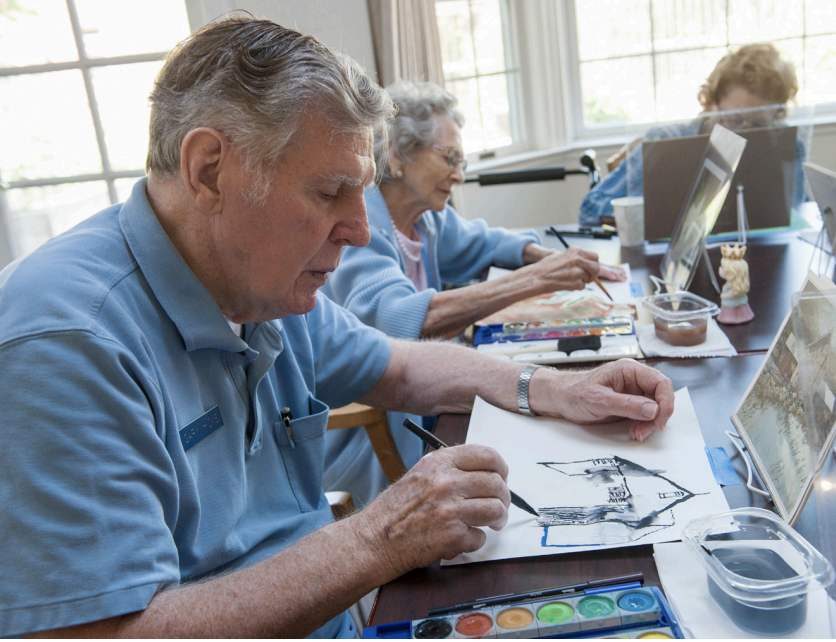
Many people enjoy creating art as a hobby, career, or medium for self-expression. And, its unique ability to enable people to express what they cannot put into words makes it an ideal practice for older adults who are experiencing Alzheimer’s disease or other forms of cognitive decline. For those who struggle with memory loss, making and appreciating art can provide a meaningful way to express creativity, communication, and joy.
Christophe Boïcos, who represents the estate of William Utermohlen – an American artist who painted self-portraits from the onset of Alzheimer’s disease through his death – has seen first hand how art can provide a much-needed outlet. In an article published on Artsy, writer Rob Sharp reports that Boïcos credits Utermohlen’s nurse with encouraging the artist to focus on self-portraiture as a creative outlet. “I think that was very helpful in concentrating his mind, because at that point he couldn’t speak,” Boïcos told Sharp. “One of the main frustrations Alzheimer’s patients have is they are conscious but they are not able to communicate. If they can express what they are feeling through drawing and painting they… will find a lot of solace in doing so.”
The Fisher Center for Alzheimer’s Research Foundation in New York echoes this rationale, emphasizing that the negative results of Alzheimer’s disease – impaired memory, difficulty retaining information, and problems surrounding language – don’t affect people’s ability to create or appreciate art. “Patients with Alzheimer’s have rich internal emotional lives that might find expression in the art making process?,” the Foundation’s website explains. “Through the use of line, form and color, art may provide a way for those with the disease to express their inner emotions and feelings.”
Joseph Pritchard, M.D., health services administrator at the Masonic Homes, has found that ceramics is a popular outlet for Masonic Homes residents with cognitive decline. “They love the process of holding and shaping the clay, and really benefit from remembering their ability to create something beautiful out of nothing,” he says. “It can be a very meaningful and empowering experience.” And, he adds, natural creativity is not required. Many older adults enjoy creating greeting cards, collages, and other tactile projects.
If you are caring for a loved one with Alzheimer’s disease, use these tips to help your loved one access their creative side.
For more ideas for supporting your loved one with Alzheimer’s disease, visit alz.org and search for “Caregiving.”
Learn more about what makes the Pavilion at Masonic Homes so special and which memory care program is right for you.

34400 Mission Boulevard, Union City, CA 94587 | (510) 216-0624
Masonic Homes of California RCFE #011440129 SNF #020000063 COA #151
© 2025 Masonic Homes of California. All Rights Reserved.